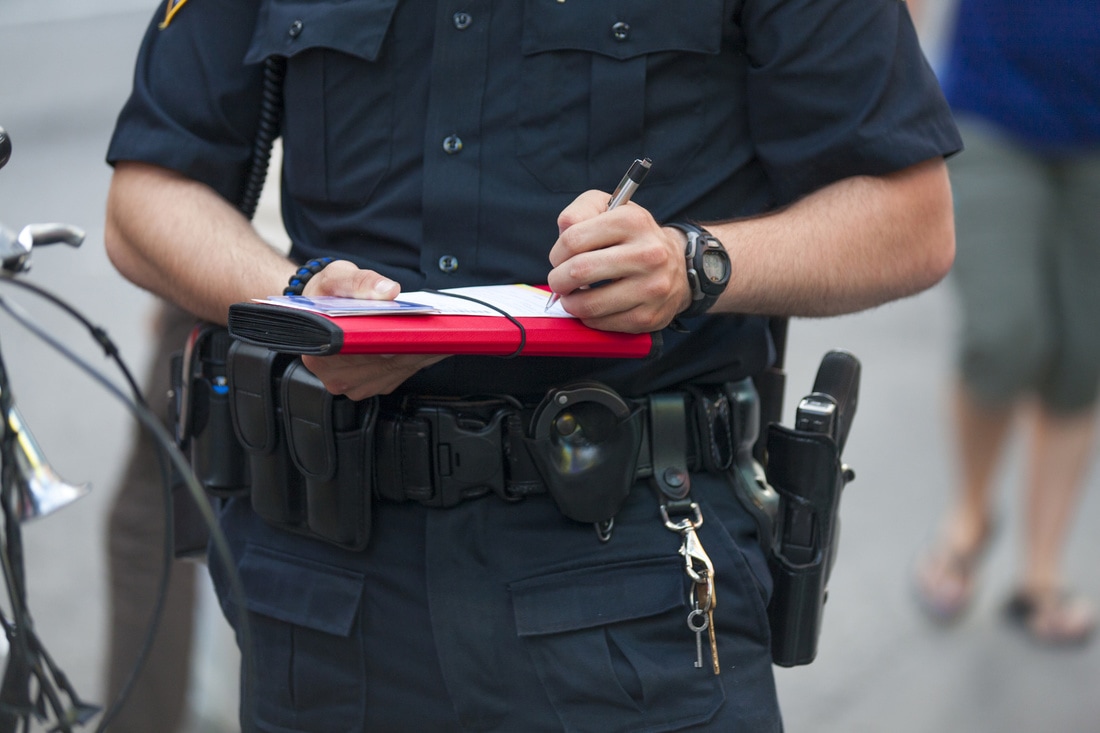There are hundreds of rules and regulations a driver must remember concerning vehicles and traffic. Even the most law-abiding citizens have trouble keeping track. Among the most important of these are your constitutional rights. A thorough knowledge of your constitutional rights can affect potential criminal charges.
Advocating for your constitutional rights doesn’t mean treating the police as an enemy. The police officers that pull you over are human beings. They often work long shifts under stressful conditions. You can certainly stand up for your constitutional rights without being rude to the officer. a jerk.
Another reason to be polite and compliant with the police is that the police officers are often friendly with the prosecutor, judges, and even defense attorneys. You’re only hurting yourself by being disrespectful to the officer, because you can rest assured that the officer will report your behavior to the judge at trial. Nothing will sabotage your case faster than the judge hearing from a trusted and respected police officer that you were rude and offensive to him as he was trying to do his job.
While out on the road, police officers can’t stop anyone without a reason. They need a reasonable suspicion that some crime is being committed before they can flag you down.
Reasonable suspicions must be based on facts. That means an officer can’t pull you over on a hunch. A reasonable suspicion must be something the officer could put into words in front of a judge to describe why they thought some law has been broken.
Police officers don’t have to have enough evidence to convict you of a crime in order to make a stop. They just need to see something that might reasonably make a person, trained as a police officer, suspicious that a crime may have been committed.
A police officer might become suspicious that a person is driving while intoxicated if the car they’re steering swerves on the road. Alternatively, if a person is driving unusually slowly for the traffic conditions, such as driving 25 miles per hour in a 55 mile per hour zone on a clear road, then that could create a reasonable suspicion of driving under the influence of drugs.
Most often police officers stop vehicles for breaking actual laws. If you’re doing something illegal in front of an officer, then you can be certain that creates a reasonable suspicion that you’re breaking a law, and the officer has the right to stop you. An officer doesn’t need to witness a felony or a serious crime to pull you over. A broken taillight is a perfectly valid reason for an officer to stop someone.
If you don’t want to get pulled over, ensure that you’re up to date with your registration and inspection. Don’t speed. Try not to swerve as you’re driving. Don’t hang anything from your rear view mirror. Don’t drive too close to the car in front of you or drive recklessly or erratically.
Surprisingly often, people are pulled over for speeding and then charged with possession of illegal drugs. Just because they were legally stopped, however, doesn’t mean their vehicle can be legally searched for drugs. In a future blog post, I’ll write about the scope of a legal stop and the constitutional protections in those situations.


 RSS Feed
RSS Feed